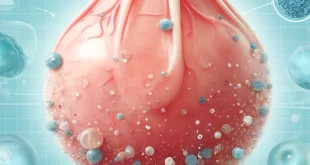Piezoelectric materials that are at the heart of a wide range of medical, safety, transport and military applications are currently dominated by lead-based materials, such as lead zirconate titanate (PZT). Nowadays the existing electrical components end up in landfill and are left to biodegradation. The toxic truth is that this waste contains ∼1450 tonnes of lead per year causing significant health and environmental risks.1,2 Currently 800 million children around the globe have alarming lead levels.3 Recent studies have shown that the environmental impact of large-scale production of alternative lead-free ceramics would be worse than that of PZT.4,5 Hence, the elemental recovery and recycling is highly crucial to reduce waste and pollution.
This project will develop electroceramic materials that can be fully recovered and reused without compromising their functional properties. Currently electroceramics are not designed for ease of disassembly at end-of-life as ceramic grains are fused together during high temperature sintering processes. We will use a facile and scalable concept to achieve superb control over micro-structure formation via self-assembly of core/shell piezo ceramic platelets formed by adsorption of reversible nanoscale polymeric bridging between platelets. The organic phase itself will be based on Poly(lactic acid) (PLA), a sustainable aliphatic polyester that has recently been chemically recycled at Bath. 6
Such self-assembled microstructures are characterised by maximum amount of electro ceramic phase arranged in a highly ordered fashion. This will i) maintain the high functionality of the ceramic by minimising the polymer content, ii) makes it possible to induce highly structured particle arrangements based on the mode of sensing or energy harvesting to maximise application driven performance, and iii) enables extraction of the ceramic particles at the end of life by removing the polymeric bond between them.
Crucially, the Green Electroceramics will be able to be deconstructed (via reversible mild acid/alkali or oxidative/reductive environmentally benign chemistry) to release the constituent high-value ceramic particles for reuse, bringing wide-ranging benefits in relation to the circular economy within the electronics sector. This will permit substitution of hard-to-recycle monolithic electroceramics with easy-to-recycle and remanufacture composites of comparable performance, thereby minimising their environmental impact.
References
1. Pisarenko, G. G. et al. Requirements for the transfer of lead-free piezoceramics into application. Journal of the European Ceramic Society 18, 3713–3715 (2017).
2. Bell, A. J. & Deubzer, O. Lead-free piezoelectrics – The environmental and regulatory issues. MRS Bulletin 43, 581–587 (2018).
3. Rees, N. & Fuller, R. The Toxic Truth: Children’ s Exposure to Lead Pollution Undermines a Generation of Future Potential. 1–90 (2020).
4. Koruza, J., Webber, K. G., Wang, K., Bell, A. J. & Fr, T. Requirements for the transfer of lead-free piezoceramics into application. J Materiomics 4, (2018).
5. Ibn-Mohammed, T. et al. Life cycle assessment and environmental profile evaluation of lead-free piezoelectrics in comparison with lead zirconate titanate. Journal of the European Ceramic Society 38, 4922–4938 (2018).
6. Payne J, McKeown P, Mahon MF, Emanuelsson EAC, Jones MD. Mono-and dimeric zinc (II) complexes for PLA production and degradation into methyl lactate-a chemical recycling method. Polym Chem.11(13):2381–9 (2020). 25.
Funding Notes
Candidates may be considered for an URSA studentship, tenable for 3.5 years. Funding covers tuition fees at the Home rate, a £1000 per annum training support fee, and a stipend at the UKRI rate (£15,609 p/a in 2021/22).
An URSA studentship only covers tuition fees at the Home tuition fee rate, and so students eligible for Overseas tuition fee status are not eligible to apply. Exceptional Overseas students (e.g. with a UK Masters Distinction or international equivalent) who are interested in the project should contact the intended supervisor in the first instance, to discuss the possibility of applying for additional funding
Duration
3.5 years.
Eligibility
Candidate Requirements
Applicants should hold, or expect to receive, a First Class or good Upper Second Class Honours degree (or the equivalent). A master’s level qualification would also be advantageous.
Non-UK applicants must meet our English language entry requirement.
Enquiries and Applications
Informal enquiries are welcomed and should be directed to Dr Hamideh Khanbareh – h.khanbareh@bath.ac.uk
Formal applications should be made via the University of Bath’s online application form for a PhD in Mechanical Engineering
When completing the form, please identify your application as being for the URSA studentship competition in Section 3 Finance (question 2) and quote the project title and lead supervisor’s name in the ‘Your research interests’ section.
More information about applying for a PhD at Bath may be found on our website.
Funding Eligibility
To be eligible for funding, you must qualify as a Home student. The eligibility criteria for Home fee status are detailed and too complex to be summarised here in full; however, as a general guide, the following applicants will normally qualify subject to meeting residency requirements: UK nationals (living in the UK or EEA/Switzerland), Irish nationals (living in the UK or EEA/Switzerland), those with Indefinite Leave to Remain and EU nationals with pre-settled or settled status in the UK under the EU Settlement Scheme). This is not intended to be an exhaustive list. Additional information may be found on our fee status guidance webpage, on the GOV.UK website and on the UKCISA website.
Equality, Diversity and Inclusion
We value a diverse research environment and aim to be an inclusive university, where difference is celebrated and respected. We welcome and encourage applications from under-represented groups.
If you have circumstances that you feel we should be aware of that have affected your educational attainment, then please feel free to tell us about it in your application form. The best way to do this is a short paragraph at the end of your personal statement.
Keywords
Ceramics; Chemical Engineering; Inorganic Chemistry; Manufacturing Engineering; Mechanical Engineering; Organic Chemistry; Polymers; Sustainability; Biodegradable polymers; Recyclable materials; Piezoelectrics, Functional oxides, Electroceramics
 medjouel.com Study Non Stop
medjouel.com Study Non Stop



